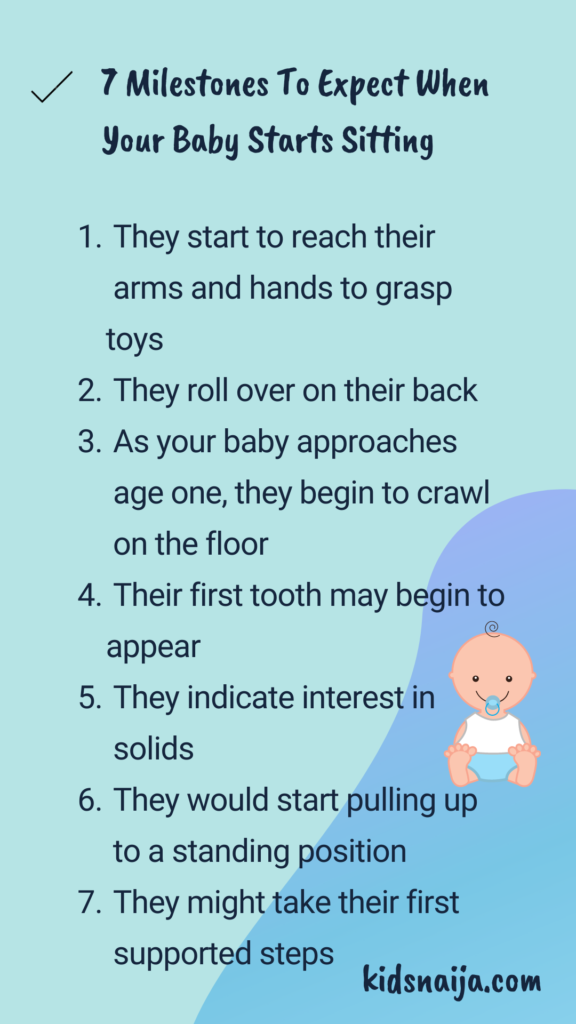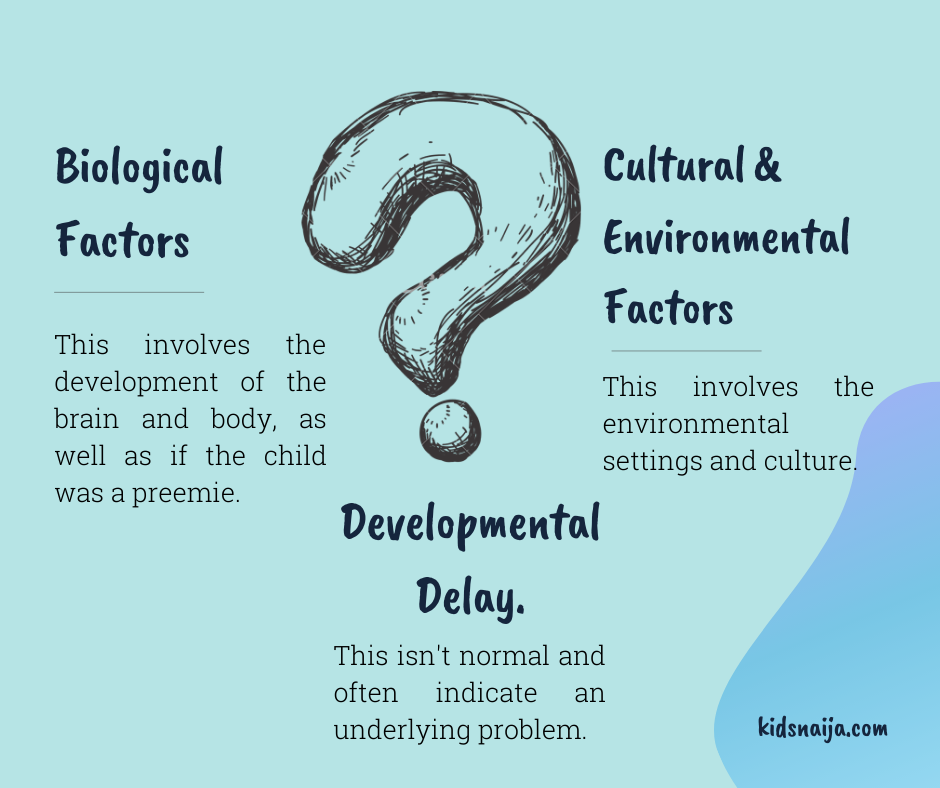When do babies sit up on their own and why is my baby not sitting yet?
When do babies sit up on their own?
Is there a specific age for every baby to start sitting or is it just left to chance?
There’s nothing as beautiful as watching your baby develop from being that bawling tiny bundle of joy you brought back home from the hospital to see them take their first step.
Your baby is rapidly developing as each day goes by and you, of course, are watching as it happens.
I guess you are actively documenting your baby’s developmental milestones. Don’t get worked up when you notice that your baby hasn’t reached certain milestones at the same time the baby next door did.
Every baby is unique. It may take each of them more or less time than their peers to reach certain stages of development.
One of the most frequently asked questions by new mothers is, “when do babies sit up on their own?”
We get it; sitting is one of the earliest developmental milestones your child will reach and you can’t wait for it to happen.
Let’s talk about this hugely important milestone right now.
Table of ContentsWhen Do Babies Start Sitting?
Before babies start sitting on their own, they need to be able to hold up their heads without any support whatsoever. Also, they should have enough strength in other parts of their bodies.
Babies need the help of the muscles in their abdomens, arms, and legs to sit up. These muscles need to be properly developed and regularly exercised.
If you’re wondering from which month baby starts sitting, then you should know this.
Most babies (according to CDC) can hold up their heads without support from around 4 months of age while still lying on their tummies.
The earliest phase of sitting for your baby is when they sit on their own with some form of assistance. Perhaps you prop him in a chair or on the floor and they remain in that sitting position without extra support.
So, when do babies sit up?
Most babies develop the ability to sit at about 6 months of age. That being said, some start sitting as early as 4 months while others may commence sitting even by 8 or 9 months old.
Baby has started to sit by themself now. Yay. Time to start leaving the child to take care of themself, right? Sorry, no.
When baby just starts sitting, they may fall if they lean over to one side or try to reach for something. This is because they are still somewhat unbalanced.
The best thing to do at the initial stage baby starts sitting is to put pillows around them for support.
Putting support around your baby doesn’t mean you should leave them without supervision. You have to be nearby in case they are trying to lean too far.
You can help by propping them into a sitting position between your legs so they don’t fall.
Most babies should be able to pull themselves up to sit without assistance at 9 months. Nearly all babies can sit on their own at this age.
8 Milestones To Expect When Your Baby Starts Sitting

As earlier said, each baby hits each milestone at their own time. However, it is usual that some certain other developments follow after your baby starts to sit up on their own.
You should look out for these other developments immediately your baby starts sitting up on their own:
- They start to reach their arms and hands to grasp toys: At this point, you would want to clear the floor of any sharp objects and anything that you wouldn’t want him to put in their mouth. Yes, babies see everything as something worth bathing with their saliva.
- They roll over on their back: As your baby sits down and tries to move on the floor, you will notice that they try to roll over either from front to back or back to front.
- As your baby approaches age one, they begin to crawl on the floor. Some babies even skip the crawling phase altogether.
- Their first tooth may begin to appear.
- They indicate interest in adult food. Yes, weaning can start from 6 months old. They can hold finger food and make attempts to feed themselves.
- They would start pulling up to a standing position. Look out for it! Any nearby furniture will be their best friend, be on the watch so they don’t fall.
- They will take their first supported steps around this period and finally get to start walking on their own.
So Why Do All Babies Not Sit At The Same Age?
Most times, new parents are disturbed that their babies haven’t hit certain milestones at expected times. This ought not to be, and if you often wonder when babies sit up on their own, then you should know that several factors come to play.
As earlier mentioned, most babies start sitting up on their own at about 6 months to 9 months old. This wide age gap is caused by two major factors. They are biological and environmental (and cultural factors).
Biological Factors
Research has shown that biological factor influences the age at which a baby sits up on their own.
The development of the brain and body has a role to play in determining when a baby sits up by themself. That is, the rate at which their bones and muscles develop will determine how soon a baby will start sitting or moving.
If your baby was born prematurely, they may reach the sitting milestone a month or two later than the average full-term baby. Getting in touch with your doctor will help you to know what milestones to expect for the proper age.
Cultural & Environmental Factors
Research done by the Academy of Pediatric Physical Therapy has shown that both cultural and environmental factors have roles to play in determining the time a baby starts sitting on their own.
The result of their research confirmed that children who grow up in countries like Kenya sit earlier than those born in the USA. This is as a result of different environmental settings children grow in.
For instance, a baby who is always left to play on his own on the floor by his caregivers/parents will sit up earlier than a child that is always carried everywhere without liberty to roam about and exercise their muscles.

My Baby Isn’t Sitting Yet: Is It A Developmental Delay Problem?
What is a developmental delay?
A developmental delay is often the case when there are a delay in reaching, language, social, or thinking milestones.
In essence, when a baby doesn’t reach a specific developmental milestone some months later than the expected age, they are often diagnosed as having a developmental delay.
This is something that can either be really significant or just minor. Some of these delays can be easily corrected.
There are a few signs that may indicate a delay in motor skills/functions and development. Signs to watch out for are:
- Stiff arms or legs
- Floppy or loose/limp trunks and limbs
- Inability to sit unsupported by age 9 months
- Restricted arms and legs movement
A red flag is your 7-month-old not sitting up on their own (that is, sitting without using their hands for support or sitting un-propped).
If by 9 months they don’t get into a sitting position, it then becomes a case for further evaluation. This is a warning sign of muscle weakness.
It may be difficult to ascertain the majority of the causes of developmental delay. This is because a lot of factors can contribute to it. These delays may even be caused by genetic problems like Down Syndrome.
Developmental delay can as well be a symptom of any of the medical conditions:
- Cerebral palsy
- Myopathies such as muscular dystrophies
- Fetal alcohol spectrum disorders
- Some genetic disorders such as Down Syndrome and fragile X syndrome
Bear this in mind though; just because your baby doesn’t reach a specific developmental milestone “on time” doesn’t mean they have a developmental delay.
However, no one knows your child as you do, so, if you believe something may be wrong, then you can visit your baby’s paediatrician.
Warning Signs To Be On The Lookout For
Do not delay in meeting with your child’s doctor if:
- By 4 months old your child isn’t able to hold their head up firmly.
- They haven’t learned to prop themselves upon their arms.
- They can’t sit without support by 9 months.
- Your baby’s body appears rigid and flexed predominantly to one side. One way to know this is if they always struggle to sleep.
- Baby can’t sit up by 12 months.
If your 4-month-old baby has an issue with steadily holding up their head, something may be wrong. The earlier it is checked, diagnosed, and treated, the better for you both.
The ability of a baby to hold up their head will come in handy as it forms the foundation for crawling, sitting, and eventually, standing.
You must bear in mind that premature babies may reach these milestones a bit later than full-term babies.
Keynotes
It is not unusual for parents to wonder when their baby will sit up. There’s nothing like being confident that your baby is developing the way they should.
Although it varies, some babies start to sit up as early as 4 months but a majority of babies start sitting at about 6 months old.
The most important thing, however, is that by 9 months, your baby should already be able to sit up on their own without support.
You can help speed up your baby’s development by doing lots of tummy time as early as possible. Also, you can make it a point of duty to prop them up regularly.
If you have any real worries about the rate at which your baby is developing, you should see your paediatrician.
The key is to seek the doctor early enough to prevent any casualty.
Don’t forget to play and bond with your baby as they gradually develop.
If you haven’t already been doing it, you need to start documenting your baby’s developmental milestones now.
Templates for documenting baby’s developmental milestones are amazing. Don’t have one yet? You can pre-order for your FREE copy below – scroll down a bit.
If you want to know what goes on in a baby’s mind when they yell for no reason, then read this letter a baby wrote to a fairy here.

Rukevwe Onoshirie
She holds a degree in Medical Biochemistry from the University of Benin, Nigeria and is passionate about health and wellness. When she’s not reading books or watching movies, she writes articles and blog posts for individuals and businesses. You can connect with her on Twitter @thisrukevwe.


